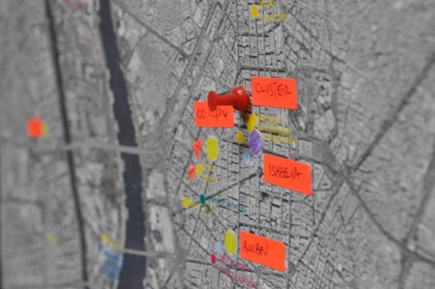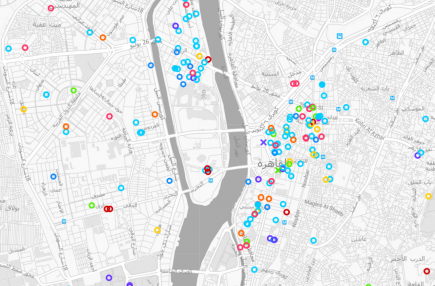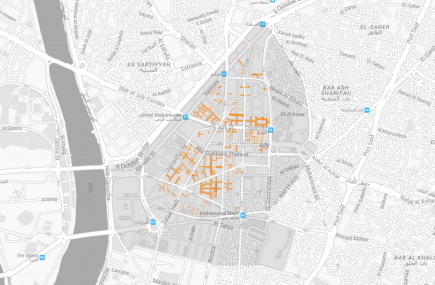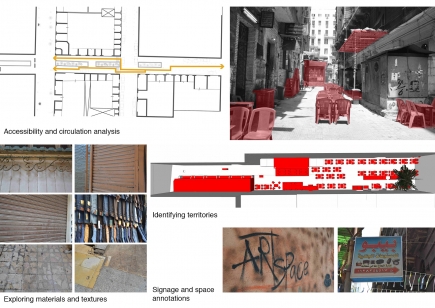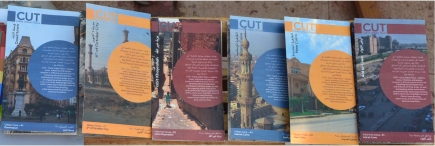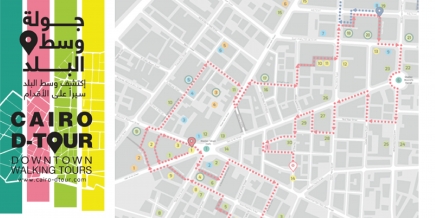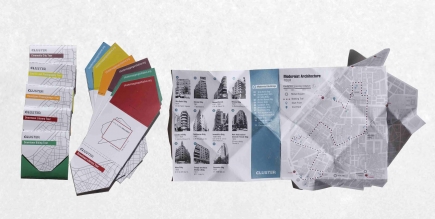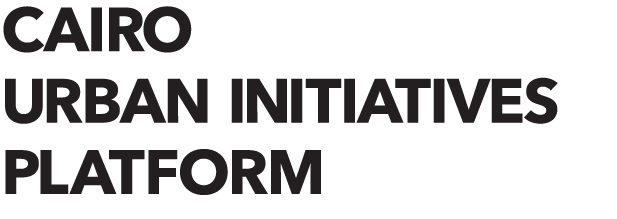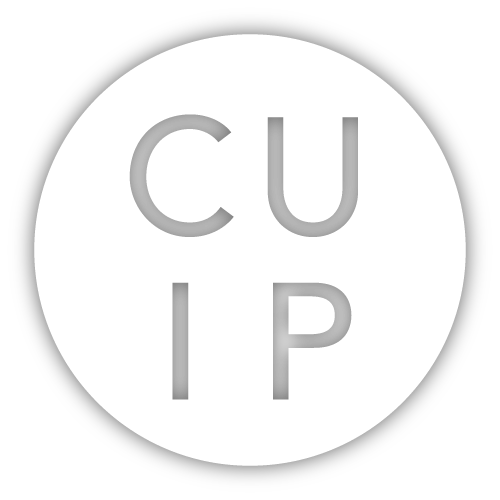| Theme: | |
| Format: | |
| Date: | Mar 28–30, 2013 |
| Organized by: | British Council |
| Venue: | Cairo International Resource Center for Art (CIRCA) |
| Address: | 11 Road 12 Mahmoud Sedky Street, Agouza |
| Admission: | by invitation |
| Supported by: | The British Council, Ford Foundation
|
Tectonic shifts in society, the economy, technology and politics are creating a very different operating environment for cultural organisations, artists and creative practitioners of all kinds across the world and the Middle East and North Africa (MENA) region. At the same time the sector has a unique and vital socio-economic role to play in these rapidly-changing and unstable times, and it is crucial that its future leaders
develop ideas, skills and networks to drive the sector forward, ensure its relevance to the changing societies around it and seize the new and valuable opportunities that are emerging.
The ‘Cultural Innovators Lab’ is one part of the Cultural Leadership and Innovation Programme of the British Council in MENA that has been designed to offer vital access to ideas, opportunities and networks where the participants can share solutions, learn from successful models, and develop partnerships and common platforms to tackle similar challenges, evolve practice and influence policy. Following the Labs, participants in the region will have access to bid into a ‘Small Change’ grant which offers a little bit of support to help realise the ideas and collaborations identified and begun in the Lab sessions.
Format of Lab
The intervention is styled on a think and do tank style encounter for c30 people in an informal space, which encourages reflection and meaningful dialogue. The participants are all young emergent leaders working with art and culture (in the broadest sense including designers, film-makers, architects, etc) who want to make a difference to the cultural growth and development of their communities. They come from
almost all of the countries in the British Council Middle East and North Africa region. There will be three Labs to cover countries in the region: Beirut (Levant countries); Cairo (North African countries); and Dubai (Gulf countries). Participation: Alongside the emergent cultural leaders selected by the British Council, there will be five UK contributors in each of the Labs. One of these is Shelagh Wright who will lead and facilitate the events. A group of more established cultural leaders, who
have previously worked with the British Council and based in each of the locations of the Labs, are also invited to participate, over dinner on the first evening, and in the morning session of the third day.
Values: The Labs are informal and open, encouraging thought from each participant about purpose (mission of activity), innovation (models of working), and independence/entrepreneurship (relationship to money). There will be no ‘experts’ in the room, everyone is a ‘peer’ and in the space to learn from each other and to share their experiences and aspirations.
Practical outcomes:
The Lab aims to create a shared mindset to respond to current challenges and opportunities; to identify possible ideas, collaborations and projects for grant applications; and to build on the development of network and ‘Community of Practice’ to inform plans for contributing to regional policy development in autumn 2013.
Shelagh Wright
March 2013
shelagh.wright@demos.co.uk
UK Participant Biographies
Shelagh Wright
Shelagh works with a diverse range of people and projects around the world on cultural and creative economy policy and sustainable practice. She is a Director of Mission Models Money an Associate of the think tank Demos, and a Director of ThreeJohnsandShelagh. Her publications include: Creativity Money Love; After the Crunch; So.What Do You Do?; Making Good Work and Design for Learning; in addition to articles and papers on sustainable cultural and creative enterprise, skills and investment policy. Shelagh has led programmes of work on policy and practice in the UK, currently leading a development programme with Tate, and was a contributor to the Creative Britain strategy and a member of the EU Expert Working Group on the Creative Industries. She is also on the boards of several UK arts and cultural organisations.
Peter Jenkinson OBE
Peter is an independent cultural broker based in London working across a diverse portfolio of sectors and disciplines and an associate of Culture+Conflict. Previously he was the founding director of both the initially £40 million Creative Partnerships creativity in learning programme with schools across England and of the £21 million, world-class The New Art Gallery Walsall. For five years from 2006 he was an
advisor on the post-conflict art programme in the City of Derry~Londonderry in Northern Ireland and a member of the city’s successful bid team to become the first UK City of Culture in 2013. He is a board member of the Drawing Room London, the International Curators Forum and the International Culture Arts Network Derry~Donegal, a patron of Space Studios London and a trustee of the London chapter of the Awesome Foundation.
David Micklem
David is an experienced producer, cultural leader and strategic thinker with a track record in supporting artists, delivering significant arts projects and influencing policy. With considerable experience as a producer, programmer and arts leader he has played a central role in some of the most talked-about performance projects of the last decade including Punchdrunk’s mould-breaking The Masque of the Red Death, Royal de Luxe’s The Sultan’s Elephant, BAC’s One-on-One Theatre Festival and WildWorks’ BABEL. From 2007 until 2012 he was Joint Artistic Director and Chief Executive of Battersea Arts Centre, a ground-breaking theatre in South London. Prior to that he was Senior Theatre Officer in the national office of Arts Council England.
Beki Bateson
Beki joined LIFT (The London International Festival of Theatre) in November 2009 as Executive Director and has delivered two city-wide festivals for over 65,000 people. Previously CEO at Greenbelt Arts Festival for nine years, she was also Projects Co-ordinator for the human rights charity Amos Trust of which she was also Chair (2007 - 2012) and where she oversaw the recruitment of a new CEO to replace the founder after 25 years. Among other work, Amos hosted the inaugural Streetchild World Cup in South Africa in 2010 and are planning the next one in Rio in 2014. Beki has led various trips to the Middle East, Nicaragua and South Africa and made films promoting charitable work including HIV and microcredit initiatives. Beki was co-founder of Vaux, a collective of artists and city-lovers that created new work and events and she has lived in London for twenty years.
Fiddian Warman
With a grounding and fine and digital arts Fiddian embodies a synthesis of creativity and technology and is passionate about the application of this hybrid in a range of social contexts. He has 15 years experience leading creative and technical teams in delivering innovative, elegant strategies and solutions. He is founder and MD of Soda, best known for BAFTA-winning online construction environment, Sodaplay. Fiddian is founder of The Makers Guild a sharing, funding and social space for creative makers. His is also an artist whose work reflect on the effect of technology on societies by use of mechatronic and robotic systems.
Workshop Participants
Workshop participants and delegates will be from the arts and culture sector mainly in the Maghreb countries, and also include Jordan and the UK
Confirmed participants include:
Meriem Serhani (Algeria)
Houda Hamdi (Algeria)
Omar Nagati (Egypt)
Hatem Salama Hassan (Egypt)
Mahmoud Mansi (Egypt)
Chaymaa Ramzi (Egypt)
Reem Kassem (Egypt)
Ezzat Ismail (Egypt)
Eman Hussein (Egypt)
Eman Zidan (Egypt)
Mohamed Elshashed (Egypt)
Dina Hafez (Egypt)
Reem Hatem Egypt
Bassem Elhady (Egypt)
Nada Sabet (Egypt)
Mohammed El Ghawy (Egypt)
Sondos Shabayek (Egypt)
Bahy Aboelezz (Egypt)
Mohamed Safi (Egypt)
Lana Nasser (Jordan)
Muftah Abudajaja (Libya)
Ghita Khaldi (Morocco)
Bouchra Zindine (Morocco)
Aya Chebbi (Tunisia)
Ouafa Belgacem (Tunisia)
Wassim zoghlami (Tunisia)
Moez Mrabet (Tunisia)
Shelagh Wright (UK)
Peter Jenkinson (UK)
David Micklem (UK)
Beki Bateson (UK)
Fiddian Warman (UK)
